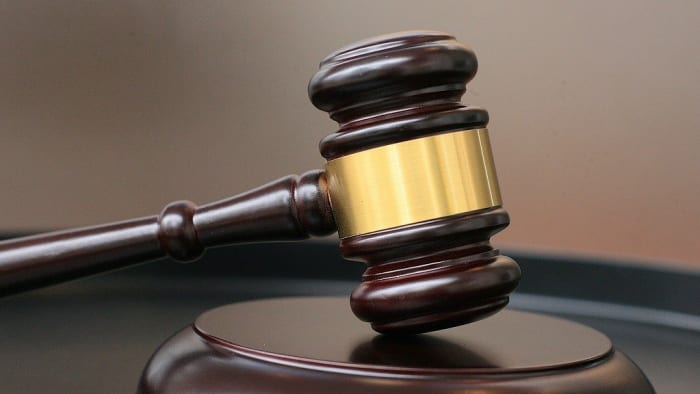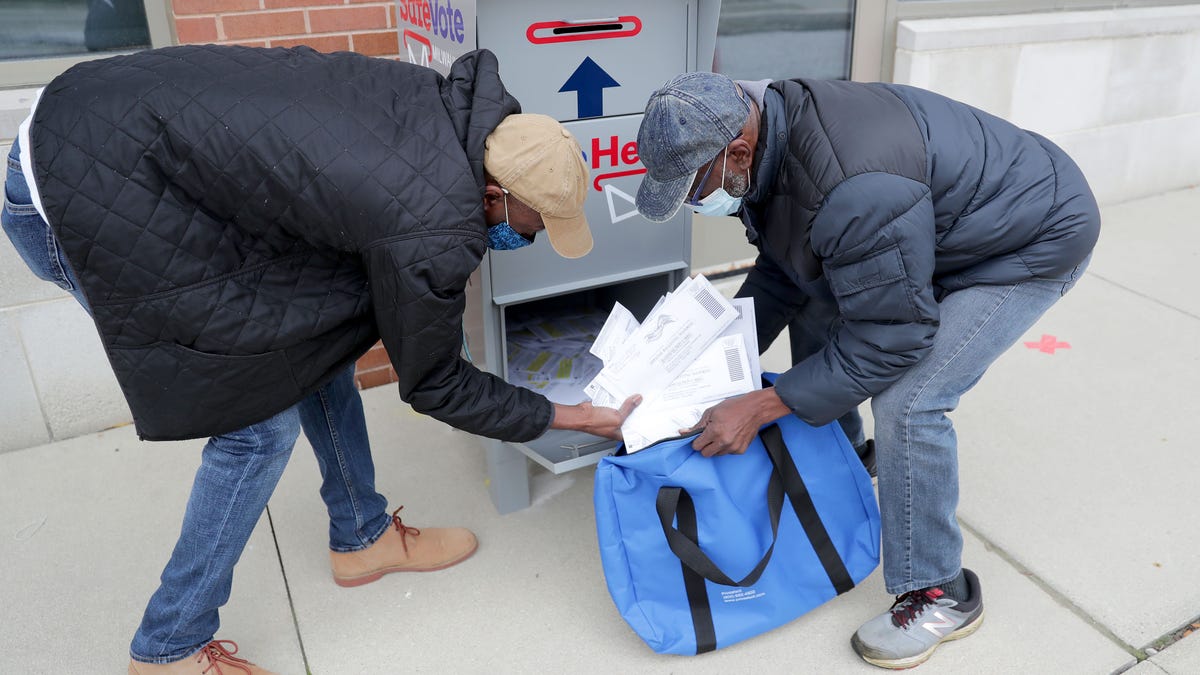Florida
The Florida Groves Music Festival is this weekend. Can you still purchase tickets?

Florida NI90: Delta IV Heavy, Naples property and Disney cabins: PBRE
USA Today Florida Network’s Rob Landers brings you some of today’s top stories from across the state.
Looking for something to do this weekend? Or want to discover some new artists to add to your playlists?
The Florida Groves Music Festival is returning for its third year in the heart of Orlando, seeing live performances from both established and emerging artists.
Known for its energetic vibe, the festival will have multiple stages set up, as well as continuous entertainment throughout the day and into the night. Sounds like a good time to you? Here’s what to know.
What is the Florida Groves Music Festival?
The Florida Groves Music Festival is a music, art and cannabis festival that takes place over two days in Orlando.
In a prior press release, festival organizers said they seek to create a celebration that “blends cultures, communities, and artistic diversity for a one-of-a-kind experience at the scenic Lawne Lake, just a 10-minute drive from Downtown Orlando.”
When and where is the Florida Groves Festival?
The Florida Groves Music Festival will take place on Saturday, April 13 and Sunday, April 14 at the Central Florida Fairgrounds.
Doors for both dates open at 1 p.m., with Saturday’s events wrapping up at 10 p.m. and Sunday’s ending around 11 p.m.
Can I still buy tickets to the Florida Grove Festival in Orlando?
According to the website, you can still purchase tickets for the festival, including:
- Multi-day passes – $119 plus tax
- Single Day passes – $79 plus tax
- VIP Booths – $1,400 plus tax
You can also head to the box office on the day of the festival to upgrade or purchase additional tickets.
What is the lineup for the Florida Groves Festival?
This year’s lineup features several new genres while uniting artists from across the globe. Officials said headliners, German duo Milky Chance and the soulful Michael Franti & Spearhead, promise a “fusion of funk, rock, reggae and electronic vibes.”
Other acts, including Tribal Seeds, Atmosphere, Two Feet, Boogie T.Rio, Manic Focus, The Elovaters, 53 Thieves, Passafire, Shwayze, Tropidelic, Cas Haley, and numerous other reggae, jazz, and funk artists will grace the stages, ensuring a rich and unforgettable musical experience for all attendees.
The festival venue offers a unique setting with a massive main stage overlooking the lake, and a second stage that has moved to a shaded pavilion for added comfort.
What other events and activities are at the Florida Groves Music Festival?
Florida Groves Music Festival will have several live art installations to view and the East Coast’s largest on-site glass-blowing demonstration.
“We stand firmly upon three pillars: Music, Art, and Freedom. Our mission is to create a seamless fusion of these pillars, creating an annual celebration that pulses with the rhythm of diverse melodies, showcases the brilliance of artistic expression and innovation, and champions the essence of freedom in all its forms,” said the festival organizers.
Other festival highlights include a tattoo convention with 25+ artists, a skateboarding infusion in the Skate Grove, pickleball courts, a cannabis convention, and eco-conscious partnerships to minimize the festival’s ecological footprint.
What items are not allowed?
Before heading through the gates on Saturday or Sunday, make sure to review the list of prohibited items, such as:
- Duffle Bags of any size
- Outside food or beverage item
- Alcohol, flasks, outside cans or cups
- Coolers, ice or ice packs
- Bottles, cans, canteens, flasks, or coolers
- Illegal substances, drugs, or drug paraphernalia
- Weapons of any kind including, but not limited to, pocket knives and self-defense sprays
- Weapon accessories of any kind, real or fictional
- Animals or pets
- Flammable lanterns, fireworks or any types of explosives
- Skateboards, scooters, or personalized motor vehicles
- Tents, canopies, umbrellas, chairs
- Professional photo, video, or audio recording equipment
To see a full list of the prohibited items, check here.
Can I park at the Florida Groves Festival?
Parking is free on Friday, while the other two dates will have parking available from the venue for $20. Ride-share and Transportation Apps are welcome to drop attendees off.

Florida
Sides battle in Florida ‘Legislative Privilege’ case

TALLAHASSEE, Fla. – Arguing that the issue is moot, voting-rights groups on Friday urged an appeals court to reject an attempt by the state House and Senate to shield lawmakers and legislative staff members from testifying in redistricting lawsuits.
Lawyers for the groups filed a 44-page brief at the 1st District Court of Appeal that said they decided in December 2022 not to continue seeking depositions of lawmakers and staff members as part of a constitutional challenge to a congressional redistricting plan passed in spring 2022.
As a result, the groups said an appeal of an October 2022 decision by a Leon County circuit judge that could have led to depositions is moot.
But attorneys for the House and the Senate have continued pursuing the appeal, arguing that a legal concept known as “legislative privilege” bars requiring testimony from lawmakers. Ultimately, the House and Senate want to take the issue to the Florida Supreme Court and to undo a 2013 ruling that allowed such testimony in certain circumstances.
The voting-rights groups’ brief said that “in December 2022, there was no longer a live issue — or even the threat of one — for this (appeals) court to resolve.”
“This appeal is unquestionably moot,” the brief said. “It challenges the circuit court’s October 27, 2022, order allowing appellees (the voting-rights groups) to depose a limited subset of legislators and staff involved in the 2022 congressional redistricting process on a limited number of topics. But those depositions never happened.”
In a March 11 brief, however, attorneys for the House and the Senate argued that the “appeal raises questions of great public importance” and that the 1st District Court of Appeal should send the case to the Florida Supreme Court. The Legislature ultimately wants the Supreme Court to “recede” — essentially reverse course — from the 2013 ruling in a case known as Apportionment IV.
“Apportionment IV erred in rejecting an absolute legislative privilege in civil cases and instead establishing a shapeless, standardless balancing analysis as the purported safeguard of the prerogatives of the legislative branch,” the March brief said. “That error threatens the legislative process with grave consequences and should be overruled.”
A coalition of groups, such as the League of Women Voters of Florida and Equal Ground Education Fund, and individual plaintiffs filed a lawsuit in 2022 challenging the constitutionality of a redistricting plan that Gov. Ron DeSantis pushed through the Legislature. They contend the plan violated a 2010 constitutional amendment that set redistricting standards, including a standard that said plans could not “diminish” the ability of minorities to “elect representatives of their choice.”
The 1st District Court of Appeal in December 2023 upheld the constitutionality of the plan, and the groups have appealed to the Supreme Court, where that issue is pending.
But as part of the case, the plaintiffs in 2022 also sought depositions from six current and former lawmakers and five current and former staff members. The Legislature fought the depositions, but Circuit Judge J. Lee Marsh in October 2022 said he would allow the lawmakers and staff members to be questioned, with some limits.
Marsh cited the 2013 Supreme Court precedent.
“The appropriate line in this case is where the doors to the House and Senate meet the outside world,” Marsh wrote. “Accordingly, each legislator and legislative staff member may be questioned regarding any matter already part of the public record and information received from anyone not elected to the Legislature, their direct staff members or the staff of the legislative bodies themselves. They may not be questioned as to information internal to each legislative body that is not already public record (e.g., their thoughts or opinions or those of other legislators.)”
In addition to arguing that the appeal of Marsh’s ruling is moot, lawyers for the voting-rights groups also wrote in Friday’s brief that there is “no absolute legislative privilege in Florida.”
But in the March brief, attorneys for the House and the Senate wrote that historically, “the legislative privilege safeguarded the integrity and independence of the legislative process and assured that fear of personal repercussions would not sway the votes of lawmakers or chill the freedom of speech and action in legislative deliberations.”
The current and former lawmakers involved in the dispute are former House Speaker Chris Sprowls, R-Palm Harbor; former Sen. Ray Rodrigues, R-Estero; former Sen. Aaron Bean, R-Fernandina Beach; Sen. Jennifer Bradley, R-Fleming Island; Rep. Tom Leek, R-Ormond Beach; and Rep. Tyler Sirois, R-Merritt Island. Each had a leadership role in the 2022 redistricting process.
Florida
Gov. DeSantis signs bill raising age to strip in Florida, combats human trafficking

DeSantis viewed more favorably than Trump: Inside Florida Politic
A new poll shows Gov. Ron DeSantis has a higher favorability rating than Donald Trump in Florida after a contentious presidential primary contest.
You won’t see an 18-year-old stripper in Florida after July 1.
Gov. Ron DeSantis signed a bill Monday afternoon that bans anyone younger than the drinking age from working at an “adult entertainment establishment,” affecting not only strip clubs but places like adult movie theaters and libraries, too.
That restriction is expected to receive First Amendment challenges in court. It’s part of broader legislation (HB 7063) aimed at combating human trafficking, including by extending the lifetime of the Statewide Council on Human Trafficking.
“We’re going to stand strong for those who may not be in a position to defend themselves,” DeSantis said at a press conference in Coral Gables. “Our state is a great state … We are a united front here saying that we’re not going to just stand idly by.”
DeSantis also announced he would be approving $4.9 million in the state budget to expand access to emergency beds and increase staff to provide trafficking survivors a safe place to begin their recovery. He added that the state has a $900,000 grant opportunity to enhance staffing and training for law enforcement targeting trafficking.
Bill supporters have alleged businesses like strip clubs are dens for trafficking, especially of young women.
But when the bill was making its way through the Legislature, some Democrats wondered if the age restriction had more to do with ideological disagreement with the exotic dancing profession. And they warned those who lose their jobs could go into more dangerous work.
“If there’s not controlled environments, young girls will get pulled into private parties,” said Rep. Michele Rayner, D-St. Petersburg, on the House floor this past session. “Once again, this House, this body, is trying to legislate what women can and cannot do with their bodies. And it’s overwhelmingly a lot of men who are trying to do that.”
Rep. Carolina Amesty, a Windermere Republican and a bill sponsor, said during press conferences that adult entertainment establishments are no place for those younger than 21 years old.
“My vision for the young women of Florida is to not work in the adult entertainment (industry) but rather get a job, an education and career and have a good quality of life,” she said.
The bill ultimately passed the Legislature with bipartisan approval, including from Rayner, with only three Democratic “no” votes in the House and Senate.
Under the law, employers who “knowingly” hire workers younger than 21 years old at adult entertainment establishments would face criminal penalties. Those criminal penalties would go as high as a second degree felony, punishable by up to 15 years behind bars, if that worker performs nude.
And the language emphasizes that “a person’s ignorance of another person’s age or a person’s misrepresentation of his or her age may not be raised as a defense in a prosecution.”
Expect a legal challenge
The measure comes as the 11th U.S. Circuit Court of Appeals is expected to rule soon on a Jacksonville dancer age restriction ordinance, a decision that could set a First Amendment precedent on age-based regulation of expression – and a decision that could potentially knock down such restrictions.
During the Jacksonville litigation, it came out that “no arrest for human trafficking has ever been made in an exotic dance establishment” in that city, according to court records. But a federal judge upheld the ordinance, and it remains in effect awaiting the decision.
“It just seems rushed and unwise to to pass a law like this now, while litigation is ongoing,” said Gary Edinger, a Gainesville-based First Amendment attorney who is representing Jacksonville clubs that filed suit against the ordinance. “You’d think (lawmakers would) just wait until the next legislative session, so they know whether the law is constitutional or not.”
Regardless, Edinger says he’s in talks with other attorneys and he has “no doubt” a lawsuit will be filed against the state law.
“There are lots of things to be concerned or note about this statute,” he said. “Adult entertainment (establishments) are not a hotbed of sex trafficking … When we’re dealing with the First Amendment, the state can’t just say something and have the courts accept it. There’s no deference to the Legislature. They’re going to have to prove those allegations.”
Lawmakers pass the age restriction: On International Women’s Day, Florida lawmakers pass bill to raise age to be a stripper
Age restriction was once thought dead: Florida Senate passes bill to raise state’s exotic dancing age to 21
This reporting content is supported by a partnership with Freedom Forum and Journalism Funding Partners. USA TODAY Network-Florida First Amendment reporter Douglas Soule can be reached at DSoule@gannett.com.
Florida
New ACLU Florida leader Bacardi Jackson points to 'Urgency of Now'

TALLAHASSEE — Saying the country is at a “deeply, deeply disturbing” juncture, Bacardi Jackson — a veteran litigator whose civil-rights advocacy is literally in her genes — is taking the mantle as executive director of the American Civil Liberties Union of Florida.
American Civil Liberties Union of Florida
/
News Service of Florida
Jackson started the job Monday amid a growing number of challenges to laws passed by the Republican-controlled Florida Legislature and signed by Gov. Ron DeSantis.
During a wide-ranging interview with The News Service of Florida, Jackson said she views her new position as an opening to spur action at a critical juncture in the history of the state and the nation.
“In my lifetime, I have never seen the barrage of repressive legislation and laws that have passed across our nation, and sadly many of those have been spawned right here in our state. So it is an opportunity to really focus and do something about securing freedom for our state and for my children and everyone’s children,” Jackson said.
Jackson’s activism is rooted in the Deep South, where her parents were civil-rights leaders, according to a cover letter submitted to the ACLU’s hiring team in January when Jackson was applying for the job.
Jackson’s paternal grandfather, a sharecropper, built one of Mississippi’s first “substantive” schools for Black children, according to the cover letter.
Her father was a strategist behind the voting-rights march from Selma, Ala., to Montgomery, Ala., which led to passage of the Voting Rights Act of 1965.
Her mother, the granddaughter of Jewish immigrants who escaped persecution in Russia, was a young anti-apartheid activist who, among other things, fought for hot lunches for school children in Memphis.
And Jackson’s stepfather was a member of the “Memphis Mobilizers,” a group that helped lead efforts to integrate public schools in the city.
Jackson pointed to her family’s history to illustrate what she characterized as disturbing developments in Florida, such as a 2022 law restricting the way race can be taught in schools.
“There was a point in our history where teaching Black children to read was punishable by death. And if we don’t understand that history, we don’t know how valuable that right is and how urgent it is to protect it when we see our public schools being defunded and decimated and destabilized intentionally.”
Bacardi Jackson
“There was a point in our history where teaching Black children to read was punishable by death. And if we don’t understand that history, we don’t know how valuable that right is and how urgent it is to protect it when we see our public schools being defunded and decimated and destabilized intentionally,” she said. “I am literally three generations from slavery and you already want to erase that history. That’s problematic.”
Jackson earned a bachelor’s degree in political science from Stanford University and graduated from Yale Law School. She began her legal career in private practice and spent the past four years at the Southern Poverty Legal Center in Florida, where she was deputy legal director for the Democracy: Education & Youth litigation team.
Jackson succeeds Howard Simon, who served as the ACLU of Florida’s executive director for more than two decades before retiring in 2018 and returning as interim director in August 2023.
Simon called Jackson an “exceptionally well-qualified” hire who comes on board at “an especially dangerous time for civil rights and civil liberties” in the state.
“Never in the decades that I have lived in the Sunshine State has there been a governor and legislature so intent on rolling back every element of progress that has been made for women’s rights, First Amendment rights, voting rights, racial equality, LGBTQ+ rights, freedom from government-sponsored religion, and so many other constitutional principles,” Simon said. “That is why I, and the members of our staff, are so thrilled that Bacardi Jackson has been appointed as our new executive director. She is exceptionally well-qualified to lead our talented staff during this critical time in the hard work they have been doing to protect the rights of the people of Florida from assault by their own government.”
Jackson’s personal history — she said she grew up in “abject poverty” and experienced hunger and homelessness — as well as her legal career will inform her approach to the leadership role, she said.
“I’m deeply curious and interested in how laws impact different people. And you know, one of the debates and discussions that I think is kind of in the ether these days is, what is the mission and what does it mean to have civil rights and civil liberties, and whose civil rights and civil liberties, and what happens when they conflict with each other, because everybody believes that they are fighting for their freedoms and rights, right?” Jackson told the News Service.
The ACLU has notched a number of legal victories in challenges to laws passed since DeSantis was first elected governor in 2018. As examples, judges have blocked laws aimed at restricting public protests, limiting how race-related concepts can be taught in colleges and universities and barring non-citizens from participating in voter-registration efforts. The DeSantis administration has appealed those decisions, and the ACLU also is involved in challenges to other state laws.
“The story of racial justice in this country is a powerful story of reckoning with ourselves. And here in 2024, I should not be fighting my parents’ battles, but I am. And at the core of those battles is an insidious continuation of racist propaganda that is the undercurrent of what we are hearing,” Jackson said.
Jackson said she plans to kick-start her new job by exploring areas “where no one is protecting our freedoms.”
“It is really important to have conversations across our state to understand where people are suffering, where our laws are causing them to suffer and figure out what we might be able to do about it,” said Jackson, who has lived in Florida for 18 years. “It can’t just be winning litigation. That would be nice. But with the next election, that can be reversed.”
Jackson also said she wants to launch a “broader campaign” that includes community engagement and activism.
For now, the mother of three teenagers is concerned about what she said is a sense of complacency. When asked, Jackson said she is most fearful of “the decimation of democracy,” which she called “deeply, deeply disturbing.”
“For me, this moment in history is a moment that demands a very loud, active, verbal response. It is a moment where we have got to figure out how to figure out how to translate, for everyone — and particularly for the young people who are inheriting the mess we’re making — the urgency of now,” she said.
Jackson said she wants to appeal to young people to get involved with the ACLU.
“We are excited about all the ways that I believe we can expand our impact. I want to just offer that invitation, particularly to young people who are inheriting all of these decisions and the consequences of them,” she said.
-
News1 week ago
A group of Republicans has united to defend the legitimacy of US elections and those who run them
-

 Politics1 week ago
Politics1 week agoHouse Dems seeking re-election seemingly reverse course, call on Biden to 'bring order to the southern border'
-

 World1 week ago
World1 week ago‘It’s going to be worse’: Brazil braces for more pain amid record flooding
-

 Politics1 week ago
Politics1 week ago'Stop the invasion': Migrant flights in battleground state ignite bipartisan backlash from lawmakers
-

 World1 week ago
World1 week agoGerman socialist candidate attacked before EU elections
-

 World1 week ago
World1 week agoSpain and Argentina trade jibes in row before visit by President Milei
-

 Politics1 week ago
Politics1 week agoRepublicans believe college campus chaos works in their favor
-

 Movie Reviews1 week ago
Movie Reviews1 week agoExhuma Movie Review: An effective horror film steeped in myth, legends, and realism







/cdn.vox-cdn.com/uploads/chorus_asset/file/25446411/WR01_IRSBLBLKBLK_033_RGB_InUse_TableChairs_DownLow_Debris_WoodFloor_1Drop_Hand_A4_MIX.png)










